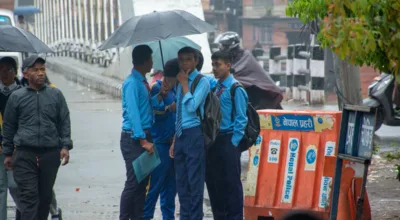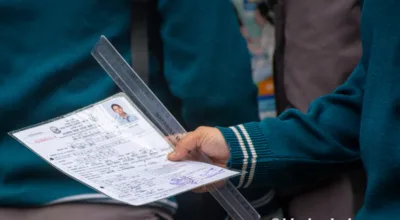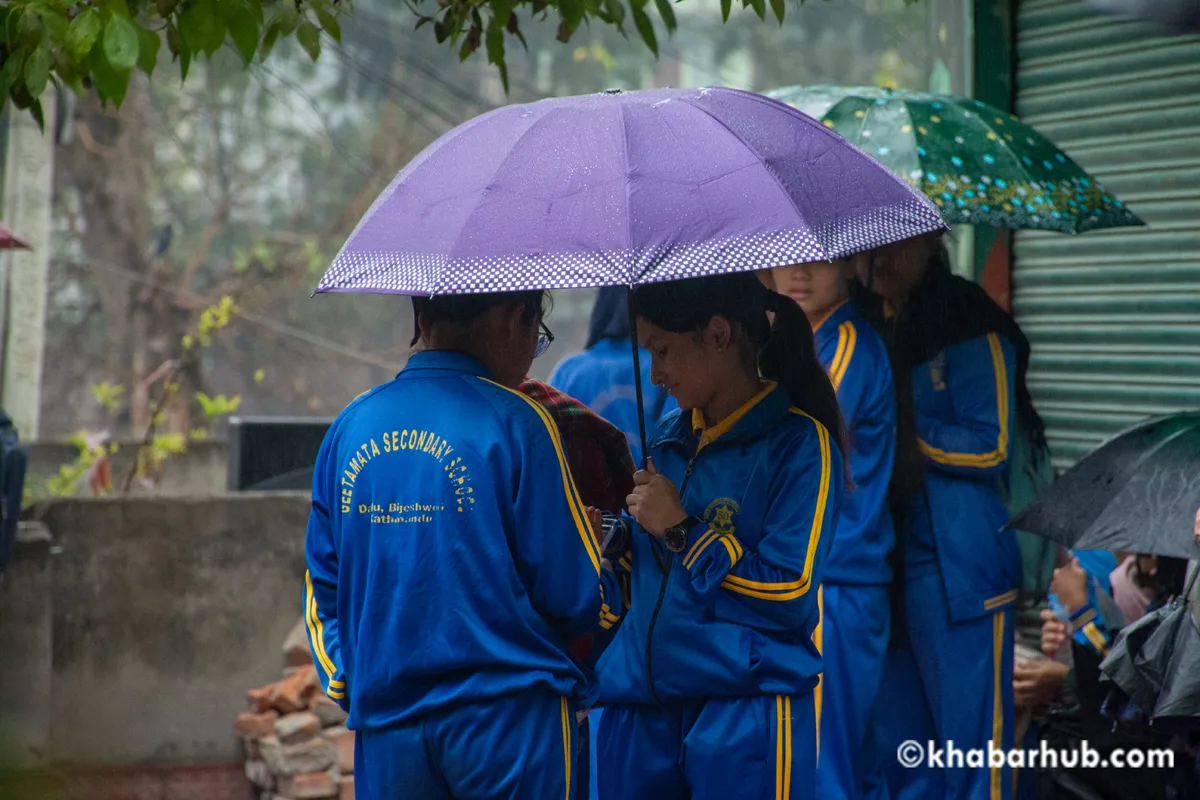KATHMANDU: The results of the Secondary Education Examination (SEE) conducted from March 28 to April 5 have raised concerns about the education system, with over half of the students failing.
The National Examination Board (NEB) released the results on Thursday morning, showing that 52.14% of the examinees did not meet the grading criteria.
Of the 464,765 students who took the SEE exam, only 222,472, or 47.86%, qualified for enrollment in Grade 11.
The remaining 242,313 students fell into the non-grading category, with 115,834 students failing in two subjects.
The SEE results were published based on the new curriculum and the Letter Grading Directive, 2078.
According to this directive, students must achieve a minimum of 35 percent or a GPA of 1.6 in each subject to pass.
Students who fail to meet the required marks in any subject are placed in the non-grading category and do not receive a grade sheet.
Those who fail in up to two subjects are allowed to participate in immediate re-examinations.
Systemic Failures
The disappointing results have sparked criticism of the education system.
Education experts argue that the failure rate reflects systemic issues rather than students’ abilities.
Professor Dr. Bishnu Karki stated that the education system is failing as over half of the students are not passing the SEE despite 10 years of schooling.
“While a government collapses without a majority in parliament, our education system continues despite a majority of students failing,” said Dr. Karki, adding, “This isn’t a new issue. We have never been able to make significant improvements.”
In the previous academic session, 26.86% of students scored a GPA between 0.80 and 1.6.

Last year, 113,313 students participated in the re-examinations.
Dr. Karki highlighted the increasing number of students failing and questioned the necessity of the current education system, including the roles of the federal Ministry of Education and its departments.
He emphasized that if over 50% of students are failing, then the resources allocated to the education system are being wasted.
Teaching Quality
Another education expert, Dr. Bidyanath Koirala, attributed the high failure rate to deficiencies in both teaching and learning.
He emphasized that both teachers and students are crucial components of the education system, and the poor results indicate that neither is performing effectively.
“The main components of the education system are teachers, students, textbooks, curriculum, and funding. While changing teachers and students is not feasible, altering teaching methods could improve results,” said Dr. Koirala.
Dr. Karki criticized NEB for making changes to the examination system without adequate research or pilot testing.
He argued that major changes should be implemented gradually, with thorough analysis to ensure their effectiveness.
Specific subject failures
The results showed that a significant number of students failed in subjects like mathematics, science, and English.
Dr. Karki noted that there is a shortage of qualified teachers for these subjects, which is a major contributing factor to the high failure rates.
“Subjects like mathematics, science, and English are critical, yet we lack adequately trained teachers for these subjects. We have not been able to attract talented individuals to the teaching profession,” said Dr. Karki.
Dr. Koirala added that no government body has taken responsibility for ensuring teacher accountability and effectiveness, which is essential for improving the education system.
He called for more proactive measures from the federal, provincial, and local governments, as well as teachers’ associations.
Despite the evolving needs of students in terms of time, technology, and environment, teaching methods have remained unchanged for a long time, leading to persistent issues in the school education sector, according to Dr. Koirala.

He stressed the need for reforms to move forward.
While current Education Minister Sumana Shrestha and others have advocated for higher salaries for teachers, the government has yet to address this issue.
While the Education Minister has noted the adverse impacts the teachers’ involvement in party politics has made in the teaching-learning, her efforts are still far from enough as the regulating authority is least likely to take action against the responsible.
Curbing the party intervention in politics plays a vital role in restoring the education system on track again.
Experts argue that attracting top students to the teaching profession is crucial for achieving better educational outcomes.









Comment